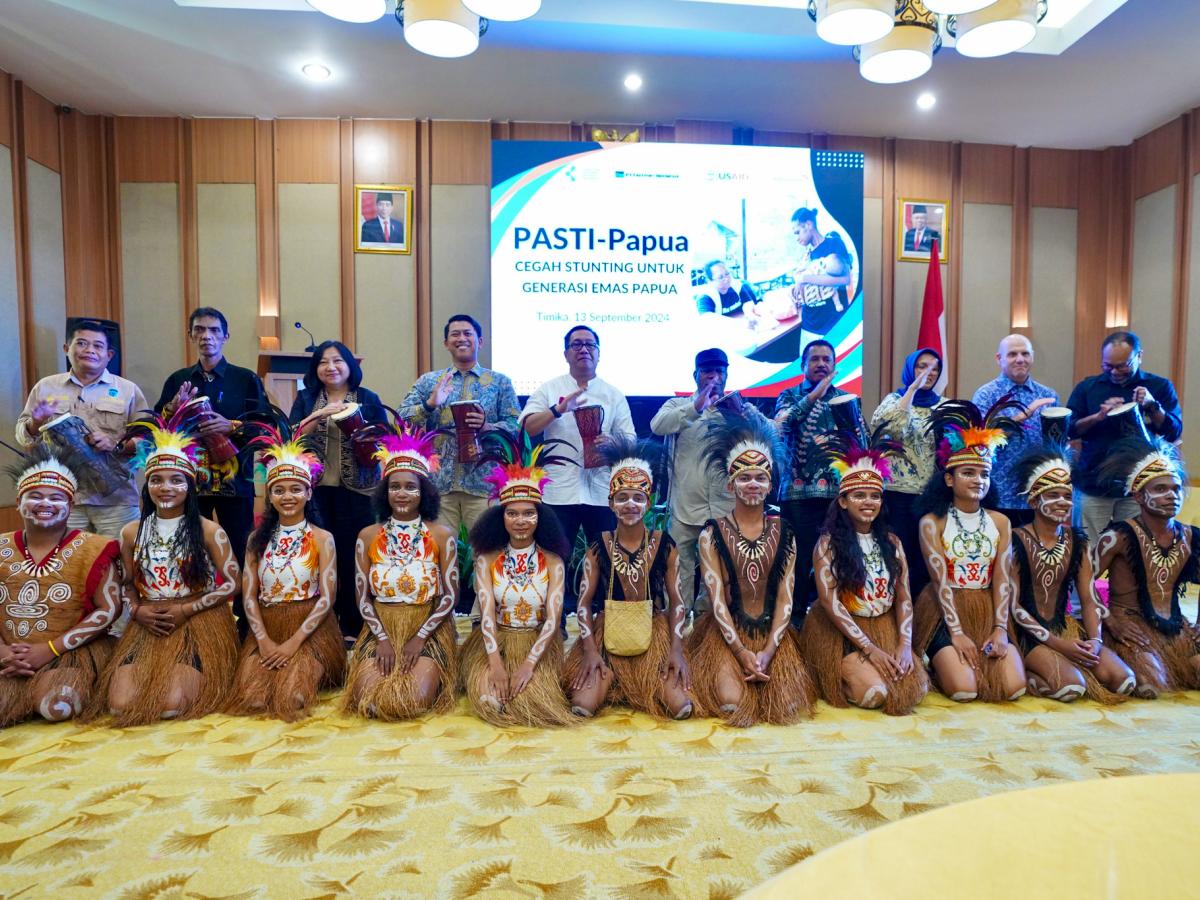For Immediate Release
Press Release
Timika, Papua — Today, the United States Agency for International Development (USAID), the Ministry of Health of the Republic of Indonesia (MoH), PT Freeport Indonesia (PTFI), and Wahana Visi Indonesia (WVI) launched the Partnership to Accelerate Stunting Reduction in Indonesia (PASTI)-Papua program at a ceremony in Timika. PASTI-Papua aims to accelerate stunting reduction and improve children’s nutrition in Mimika and Nabire districts in Central Papua province and Asmat district in South Papua province.
PASTI-Papua is a three-year, $4 million activity, including a contribution of up to $500,000 from USAID. The program supports the Government of Indonesia’s National Action Plan for Accelerating Stunting Reduction (RAN-PASTI), which aims to reduce Indonesia’s stunting from the current rate of 21.5 percent to 14 percent.
“The United States is pleased to work with PT Freeport Indonesia to support the Government of Indonesia’s efforts to reduce the incidence of childhood stunting in Central Papua and South Papua provinces,” said Jeff Cohen, Mission Director of USAID Indonesia. “By partnering with local communities, government institutions, and other stakeholders, USAID aims to develop sustainable solutions to address the root causes of stunting.”
According to the Indonesia Health Survey 2023, South Papua and Central Papua have some of Indonesia’s highest stunting rates, at over 28 percent and 40 percent, respectively. If not addressed immediately, stunted children risk experiencing delayed brain development, which can result in reduced cognitive abilities that affect their future productivity.
“Promotive and preventive efforts are the basis for preventing the occurrence of new stunting in Indonesia, including changing people’s behavior. Hopefully the existence of PASTI-Papua can create cross-sector coordination and convergence to accelerate stunting reduction in the Papua region,” said Dr. Maria E. Sumiwi, Director General for Public Health, Ministry of Health.
Efforts to reduce the rate of stunting in Papua have been hindered by low public awareness about the importance of health checks during pregnancy and after birth, as well as inadequate attention to nutrition for pregnant mothers and young children.
Claus Wamafma, Director and Executive Vice President of Sustainable Development at PTFI, highlighted Freeport Indonesia’s commitment to improving the quality of life in Papuan communities, including through investment in health programs. “Through the integrated PASTI-Papua program and the cooperation of all parties, we hope to accelerate efforts to reduce stunting and improve the nutritional status of children so that the health of the Papuan people is protected,” he said.
PASTI-Papua aims to improve the quality of community-based nutritional health practices. To achieve that objective, the program will work closely with community leaders to encourage healthy nutrition practices for families and improve the quality of services at community health centers (puskesmas) by strengthening integrated, comprehensive, and preventive primary health services for mothers, children and adolescents. PASTI-Papua will be implemented by Wahana Visi Indonesia.

